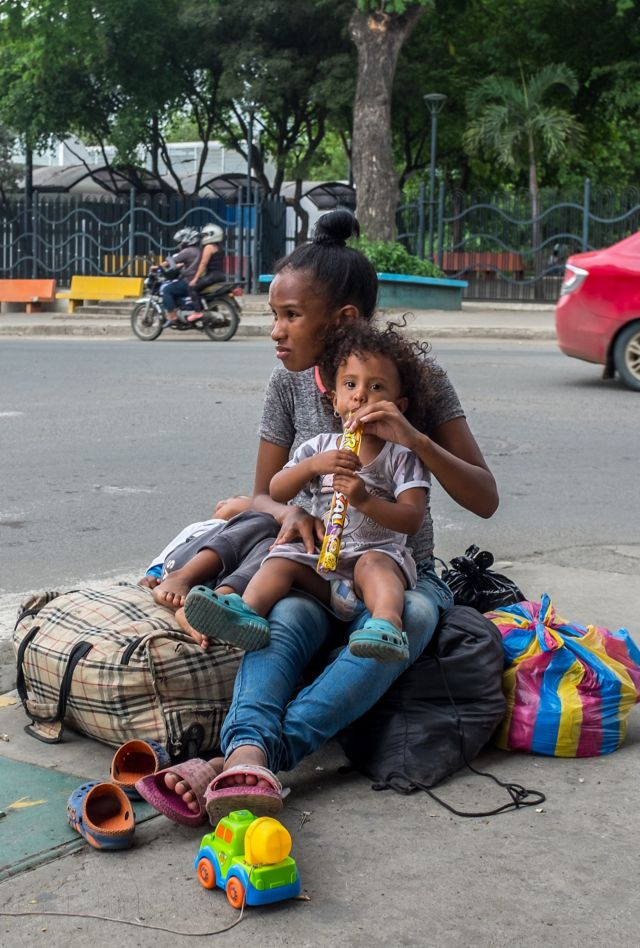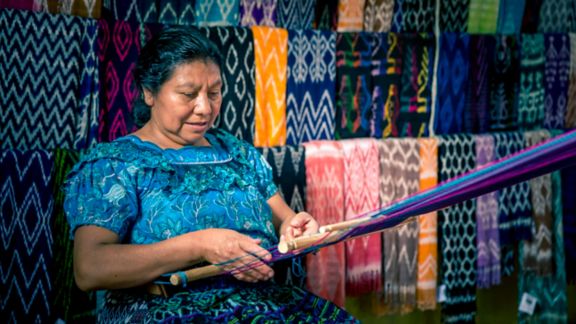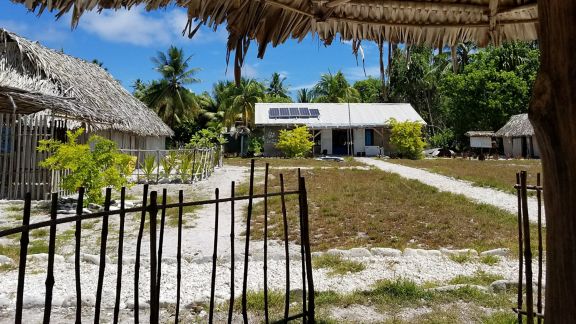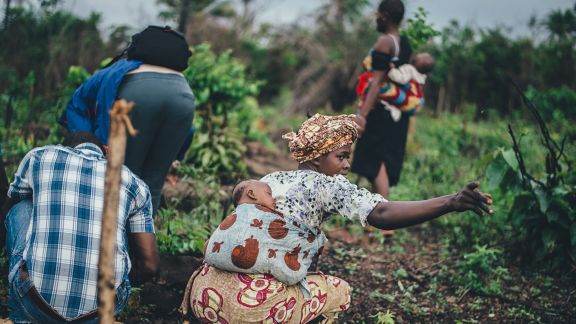Host Countries Seek Ways to Protect Venezuelan Migrants from Sexual Violence

This article is from our NORC Now newsletter. Subscribe today.
February 2024
The Western Hemisphere is experiencing the largest displacement of people in its history. Over 7.7 million Venezuelans have fled their homeland, landing mostly in nearby Latin American and Caribbean countries and affecting the public services and infrastructure, health care systems, labor markets, and community relations of these host countries.
The Better Together Challenge/Reto Juntos Es Mejor (BTC) sought to identify, fund, and strengthen innovative solutions to this regional crisis. The U.S. Agency for International Development (USAID) and the Inter-American Development Bank jointly funded 35 activities toward this end, some of which addressed gender-based violence (GBV) against Venezuelan refugees and migrants.
In 2021, USAID’s Gender Equality and Women’s Empowerment Hub (USAID/GenDev) tasked NORC with evaluating whether its GBV-prevention activities were context-specific, based on international evidence, achieved targeted results, and sustainable. NORC’s evaluation included activities in three countries:
Guyana: Building the Gap for Venezuelan Migrants (BTG4VM)
Panama: Power Dynamics: Engaging Men in Gender-Based Violence Reduction (SPD)
Trinidad and Tobago: Women Exercising Leadership for Cohesion and Meaningful Empowerment (WELCOME)
“The countries we studied did not have a recent history of massive immigration,” said Carlos Echeverría-Estrada, a research scientist in NORC’s International Programs department. “As a result, they had to transform themselves to accommodate the Venezuelan migrants and refugees and address sexual violence toward and among them.”
Our evaluation was part of an in-depth performance review of USAID/GenDev’s four-cluster GBV-prevention portfolio. For this cluster, we interviewed 34 program users who were GBV survivors. We also conducted a web survey of 20 service providers, reviewed 66 program documents, and held two focus groups with staff and one with the female partners of male program participants.
We found that the grantees created context-specific approaches and met individual client needs, program outputs, and short-term outcomes. However, sustainability was a challenge. Only the Guyana activity secured funding to continue its activities after USAID funding ended. Donors need to consider the implications of short-term funding, especially for small organizations or countries with limited capacities, such as Trinidad and Tobago. We recommend that, in the design phase, grantees include building fundraising skills, integrating a network of partners—including those with whom they can collaborate on fundraising proposals—or coordinating with larger agencies to increase the longevity and reach of their programs.
Because trauma from migration and sexual violence takes time to address—and can impact a survivor’s ability to make critical decisions regarding their health, housing, and pursuit of justice—we suggest that psychosocial interventions add more counseling sessions and other interventions provide referrals to psychosocial services. These services include support groups to improve self-esteem and heal trauma, including child sex abuse, which can help reduce GBV by changing perspectives. The wife of a male program participant in Panama reported that her husband began understanding gender equality, doing housework, and even counseling other couples after participating in a workshop.
We also found that psychosocial advocates and staff need training on confidentiality, data security, and how to use monitoring data to ensure that the service provider network can address each client’s needs without client harm.
Grantees should also consider covering the opportunity costs—including transportation— program participants incur in getting to and from counseling sessions, workshops, or other program activities. Some interviewees mentioned transporting women from the same community as a group as one way to reach more female program participants by making it easier and safer to travel.
“GBV comes in different sizes and packages,” said Echeverría-Estrada. “What we know is that women—especially those with an irregular migration status—are more vulnerable to it, whether it’s sexual harassment, sexual trafficking, rape, or intimate partner violence.”
Unauthorized female migrants may be more vulnerable, but anyone can be a victim, especially members of the LGBTQIA+ community. However, there was no LGBTQIA+-specific programming. Future grantees should include LGBTQIA+-tailored activities starting from the design phase.
We also recommend that future GBV programming for migrants strongly consider housing and livelihood assistance, including occupational and entrepreneurship training. Helping migrants generate income can lead to property ownership, which confers legitimacy and—by extension— protection against GBV.
BTC is but one of four USAID GBV-prevention clusters. In addition to evaluating and creating reports, infographics, and policy briefs for each cluster, we conducted an overarching GBV portfolio performance evaluation (PPE). All of this provides a rich source of evidence and information for future programming.
To widely share this knowledge, we held several dissemination events including a workshop to discuss recommendations with USAID staff and implementation partners.
More from This Series
This article is from our flagship newsletter, NORC Now. NORC Now keeps you informed of the full breadth of NORC’s work, the questions we help our clients answer, and the issues we help them address.









